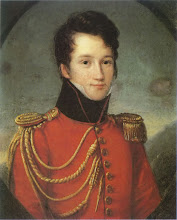From the Chinese of Cen Can
Along with Gao Shi and Xue Ju, I climb the pagoda of the Ci-en Monastery [i]
The pagoda seems to leap into the air
Rising alone to touch the palace of heaven.
Climbing, we look down on the world left behind,
Stone steps coiling up into the void.
Soaring on high, it dominates the capital.[ii]
Tall and impressive, like the word of demons.
Its four corners hinder the bright sun,
Its seventh storey brushes the blue vault.[iii]
Looking down, we point to high-flying birds,
Leaning over the edge, we listen to the startling wind.
Mountain ranges like waves and billows
Seem to be rushing to the eastern sea.
Green pines border the imperial highway,[iv]
How clear and bright stand the palace halls!
Colours of autumn approach us from the west,
Yellow-green hues filling the Passes.[v]
Five Mausoleums on the eastern plain[vi]
So ancient they are whelmed in greenery.
Buddha’s Truths may be clearly understood,
I shall ever respect my karma as my teacher.[vii]
I’ve vowed to hang up my hat and disappear,[viii]
Realize the Way and gain undying merit.
[i] Probably written in the Autumn of 752. The pagoda, close to a hundred metres in height, built by the Tang Emperor Gao in 652 in honour of his mother, is still standing in Xi-an.
[ii] Literally ‘Shen-zhou’, ‘the Province of Spirits
[iii] An extra two stories had been added to the pagoda in 701.
[iv] The road along which the emperor travelled to the palace. This was originally (during Qin) fifty paces wide and bordered with green pines to symbolize constancy and long life.
[v] The territory around the capital.
[vi] The tombs of five Han emperors which stood north of the Wei river.
[vii] My translations of this line is somewhat tentative. However, the general purport of the lines is clear enough. He turns away from the scenery to reflect on his position as a visitor to the monastery, realising that the Way he seeks cannot be found through his official career. His karma is to renounce the world and become a monk.
[viii] His official cap.
COPYRIGHT (C) 2010 J D FRODSHAM




No comments:
Post a Comment